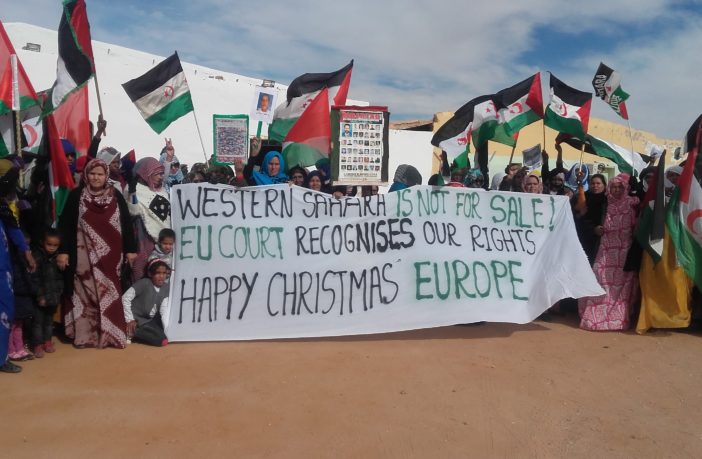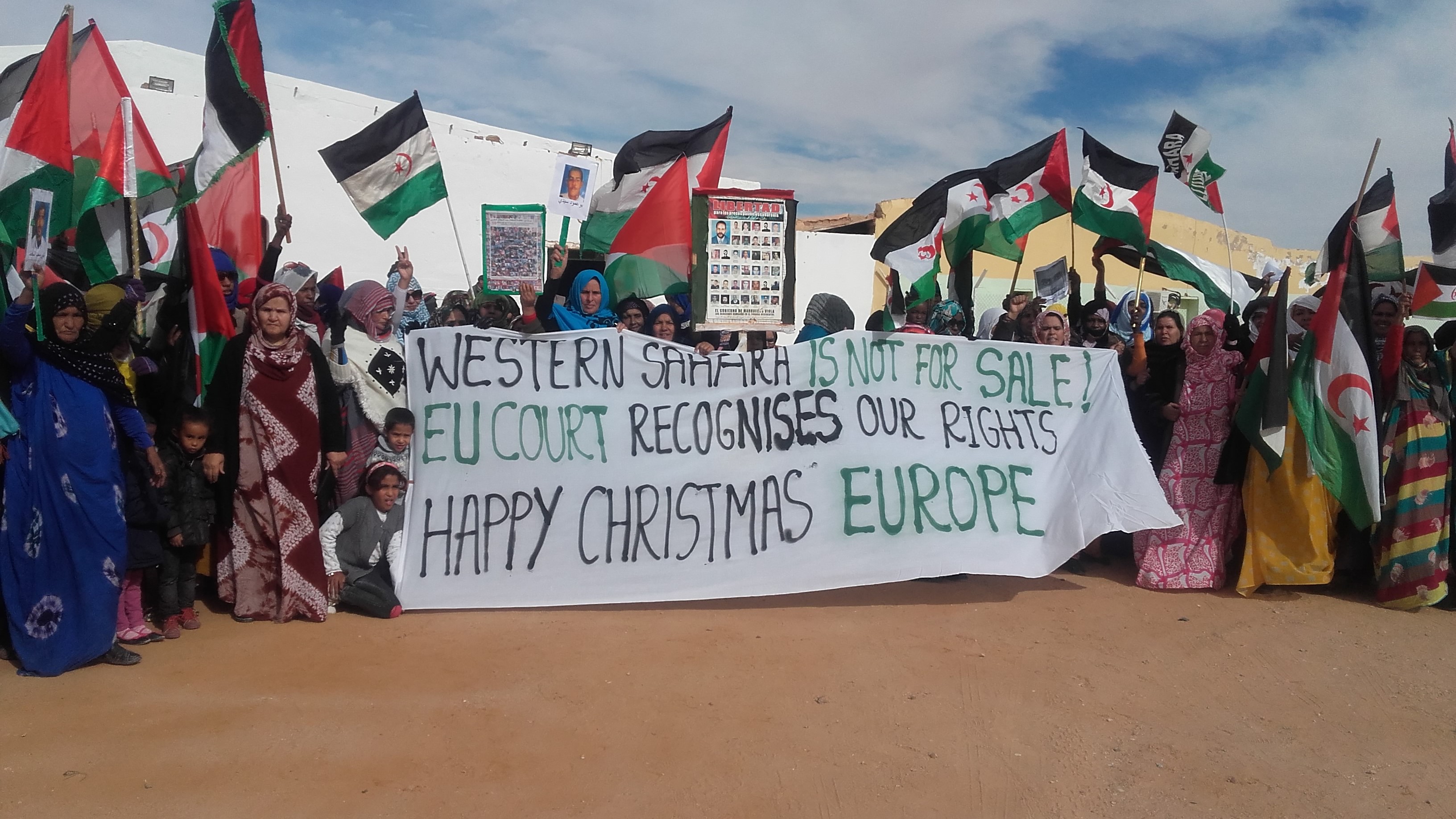EU Observer
Jeanne Laperrouze
(Photo: Western Sahara Resource Watch)
The Western Sahara has been declared a ‘non self-governing territory’ by the United Nations since 1963 – creating a legal void.
The current agreement, which will expire on 14 July 2018, authorises European vessels to fish off the coast of Morocco in exchange for financial compensation.
Nothing seemed to cast doubt on the success of these negotiations until January 10, when the EU advocate general Melchior Wathelet advised the Court of Justice of the EU (CJEU) to invalidate the protocol.
According to Wathelet, the deal should be broken off because it applies to the shores of Western Sahara, an “illegally occupied” area.
An eventual court adoption of Wathelet’s view would have far-reaching implications not only for future EU-Morocco relations but for the entire external policy of the EU.
The case concerns a question submitted by a British court to the CJEU following a complaint by Western Sahara Campaign UK, a lobbying group supported by Polisario.
For the first time, the EU court is seized on a question regarding EU’s international agreements, which highlights the utmost importance of the decision expected on February 27.
Whatever legitimacy we may attribute to the Moroccan administration in Western Sahara (also known as southern provinces), the United Nations regards the region as a “non-self-governing territory”.
Legal void
Back in 2002, a UN legal counsel even recognised the possibility for Morocco to exploit natural resources of Western Sahara as an “administrative power” under certain conditions.
While acknowledging that the unachieved decolonisation process created some legal void, it is unjustifiable to argue that the EU Court of Justice could substitute for the UN Security Council by redefining a very complex situation, especially when even the European capitals’ positions on this decades-old conflict remain elusive.
Advocate general Wathelet seems to place human rights above all, and especially the right of peoples to self-determination.
That may indeed look like a very noble principle – putting aside that the EU has to face the rise of separatism and nationalism within its own borders. However, if the respect of human rights were a condition sine qua non for the EU to conclude any international agreement, then the Union’s political leverage to spread fundamental rights in third-countries would be paradoxically weakened.
This would not only hamper the future negotiations on a new fisheries agreement with Morocco, but also any cooperation or partnership agreement with countries such as Turkey and Armenia.
Following the advocate general’s logic could, hence, deprive the EU of any manoeuvring power in its foreign relations while compromising its external policy priorities, such as the European Neighbourhood Policyor the Cotonou Agreement, whose very principle is to enhance democracy and ensure respect of human rights in EU partner countries.
Not just human rights
Moreover, the EU-Morocco relations could not be only viewed through the lens of human rights.
Since 1960, the EU and Morocco have developed a strategic partnership in a wide range of areas, such as fight against terrorism and migration.
Intelligence sharing between the two sides allowed the EU to stop many terror attacks, greatly contributing to the Union’s security. The two sides are also working closely together to counter illegal immigration from Africa, which has been labelled “Europe’s biggest challenge”.
Let us also recall that that the Dakhla-Oued Eddabad and Laayoune-Sakia El Hamra administrative regions, both located in the non-self-governing territory of Western Sahara, alone received 68 percent of the total sectoral support foreseen by the current fisheries protocol, according to the 2017 assessment report.
The non-renewal of the agreement would deprive local populations of these advantages.
Without tariff preferences and sectoral support, no level playing field could be guaranteed for local operators, to allow them to compete on international markets.
How could Sahrawi people be better off then? Instead of paving the road to hell with good intentions for the Sahrawi people, the EU should focus on speeding up the resolution of this lingering conflict under the UN auspices.
Jeanne Laperrouze is a former policy advisor at the European Parliament and a post-graduate student at the faculty of law at the University of Toulouse, France.








